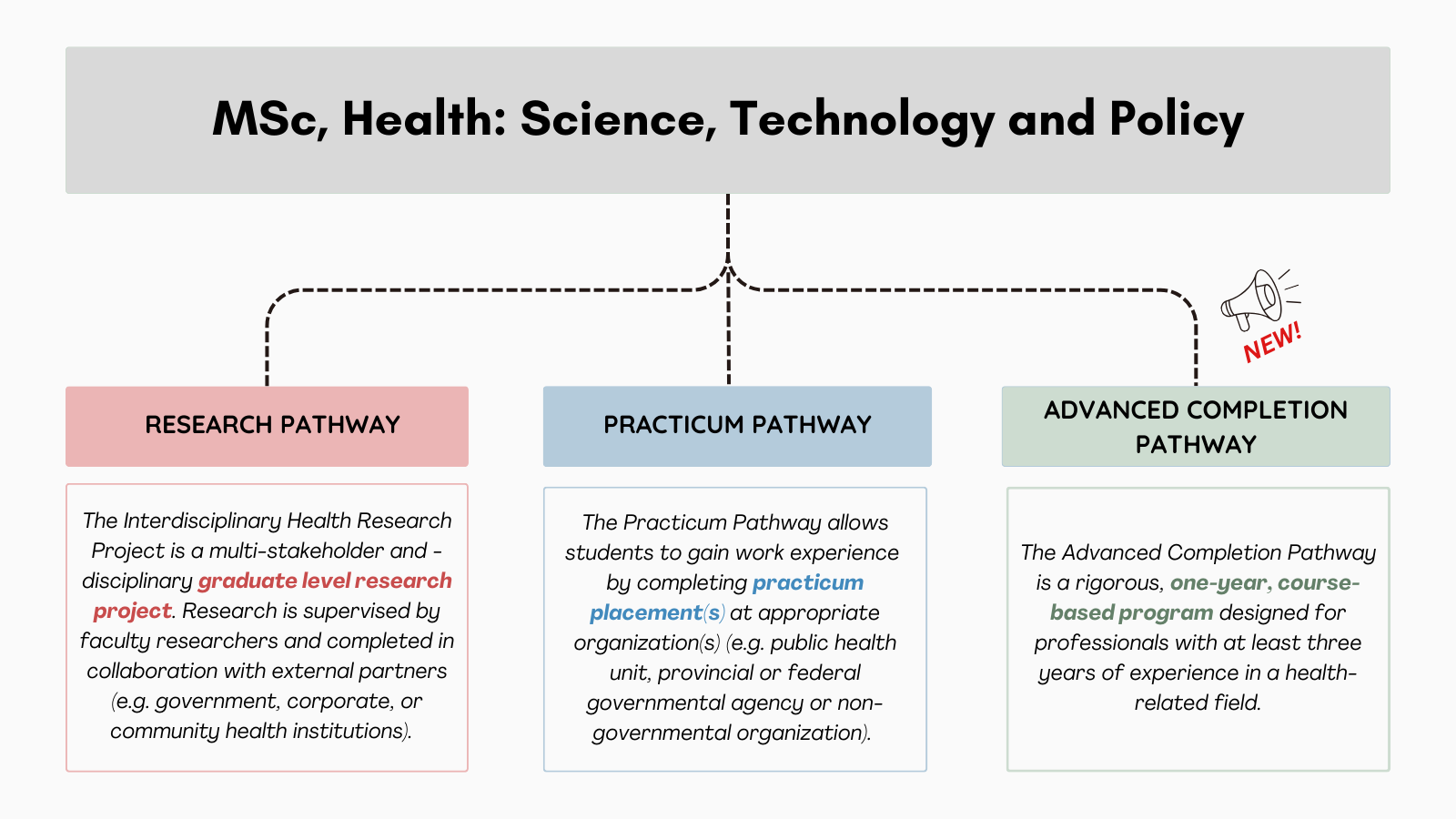The distinctive features of our MSc program in Health: Science, Technology and Policy (HSTP) include an emphasis on skill acquisition, using problem-based approaches to understand health issues and sectors, and participation in collaborative interdisciplinary health research projects or through the practicum pathway of field research and placement. The program design is facilitated by the cohort model, which allows for collaboration between students from various academic backgrounds to improve their understanding of complex problems in the broad field of health and provides opportunities for students to enhance their learning experience by working together. The professional relationships formed by students in each cohort, as well as the opportunities to meet and work with experts across health sectors and disciplines, will provide additional value to students as they prepare for their professional careers.
The 6-credit HSTP MSc program is completed over 20 consecutive months while enrolled full time. Students complete 5 credits of coursework. The remaining 1-credit will comprise of a) Interdisciplinary Health Research Project, or b) Field Research and Placement.
Research Pathway – The Interdisciplinary Health Research Project is a multi-stakeholder and -disciplinary graduate level research project. Research is supervised by faculty researchers and completed in collaboration with external partners (e.g. government, corporate, or community health institutions).
Practicum Pathway – The Practicum Pathway allows students to gain work experience by completing practicum placement(s) at appropriate organization(s) (e.g. public health unit, provincial or federal governmental agency or non-governmental organization).
The new Advanced Completion (option) Pathway is a rigorous, one-year, course-based program designed for professionals with at least three years of experience in a health-related field. This 5-credit HSTP MSc program is completed over 12 consecutive months while enrolled full time.
The 6 core courses required by the HSTP MSc program are designed to provide students with:
- a foundation in research methods, statistics and policy,
- an understanding of the broadly interdisciplinary nature of the research-policy interface in the health sector,
- an understanding of new health technologies,
- leadership, communication and knowledge translation skills,
- practical experience working in interdisciplinary teams within, and external to, the university.
Critical assessment of research and policy information, integrating information from diverse sources, and effectively communicating with disciplinary experts are focal points of the core courses of the HSTP program.





